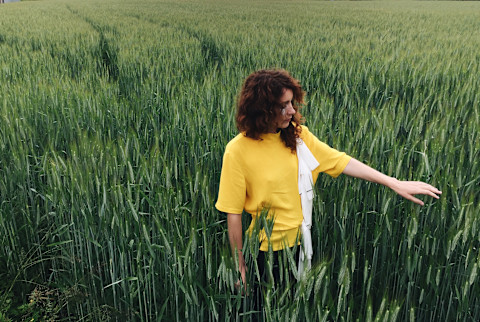How To Fight Loneliness With Wisdom, According To A Neuropsychiatrist

Humans are social creatures. We seek and need the company of others—family, friends, even strangers. This is a constant. But life is not, except in the sense that it constantly changes over time. And when our social circumstances change, sometimes we find ourselves feeling lonely and isolated.
What actually defines loneliness?
Loneliness is not necessarily a product of physical isolation. Many people manage their lives just fine despite minimal interaction with others. They are alone but not lonely, which is a subjective feeling, a matter of perspective and desire. Loneliness is distress caused by feeling alone, even in a crowd. It's the difference between what you think you have and what you think you want.
Is age linked to loneliness?
While moderate to severe loneliness is present across the adult life span1, I've found it is particularly intense in certain age groups—one of which is the late 80s.
In our society, becoming older often means moving into senior living or retirement communities. These places have obvious benefits, closer proximity, for example, to essential services and one's peer group. These are prime examples of congregate settings. And yet, loneliness is not uncommon in these communities or group living situations, despite shared common areas, planned social outings, and communal activities.
In fact, in one study conducted by colleagues and me, 85% of residents in an independent senior housing community reported moderate to severe levels of loneliness2. Some of the reasons were obvious. Age-related losses, such as those of spouses, siblings, and friends, are a source of loneliness. Making new friends in a new community is not always easy and may not completely make up for whom we have lost. Loneliness may also be associated with a loss of purpose in life, of losing direction and control.
But age can bring wisdom, which is the great antidote to loneliness3.
How wisdom can help with loneliness.
As I've found in my research, wisdom carries with it some components critical to fending off loneliness4, including self-reflection, empathy and compassion, spirituality, and emotional regulation.
Here are some of my observations about ways to use wisdom to combat loneliness, all based on rigorous, empirical evidence published in peer-reviewed scientific journals:
Seek to understand the loneliness.
The first step toward feeling less lonely is to recognize that you are feeling lonely and think about why you feel that way4. This requires self-reflection, an uncompromising look at your behaviors, actions, and the world around you. What situations make you feel lonely? On the other hand, what things have you done to make those situations better or to eliminate them altogether? Before we can address an issue, we have to understand its origins.
Know empathy is important.
It's wise to remember everyone has problems and challenges. Aloof or bad behavior by others may be an unintended side effect of their own struggles and not truly directed at you. What can you do to ease their pain? Do something nice for them, and it will be paid back in kindness. That is compassion.
Recognize compassion is multidimensional.
Of all the components of wisdom, I've observed that pro-social behavior or compassion is most predictive of loneliness—in other words, practicing compassion may help prevent and reduce chronic loneliness.
There are two important categories of compassion to keep in mind: compassion toward others and compassion toward yourself. Self-compassion is learning how not to be too hard on yourself. We all make mistakes. We all live and learn. Remember: Loneliness isn't a failure of personality.
Tap into your spiritual self.
The way I see it, spirituality isn't religion—atheists can be spiritual. To me, spirituality5 means having a constant connection to something or someone that may sound abstract to others–whether you call that entity soul, consciousness, nature, or god—that is always there. It may come from engaging in meditation or an activity like tai chi or yoga. It could even be communing with nature.
The bottom line.
There is no one-size-fits-all solution to fending off or ending loneliness. It begins with a clear-eyed assessment of oneself and circumstances, but everything else is a matter of finding what works best, often with the help of others.
"I've accepted the aging process," one senior participant in our study told me. "I'm not afraid of it. I used to climb mountains. I want to keep moving, even if I have to crawl." The good news, I believe, is this kind of attitude ensures there will be others beside you—helping you stand, walk, run, and climb.
5 Sources
- https://pubmed.ncbi.nlm.nih.gov/30560747/
- https://www.tandfonline.com/doi/abs/10.1080/13607863.2019.1699022?journalCode=camh20
- https://www.frontiersin.org/articles/10.3389/fpsyt.2021.648475/full#B1
- https://www.frontiersin.org/articles/10.3389/fpsyt.2021.648475/full#B71
- https://jamanetwork.com/journals/jamapsychiatry/article-abstract/2765959
